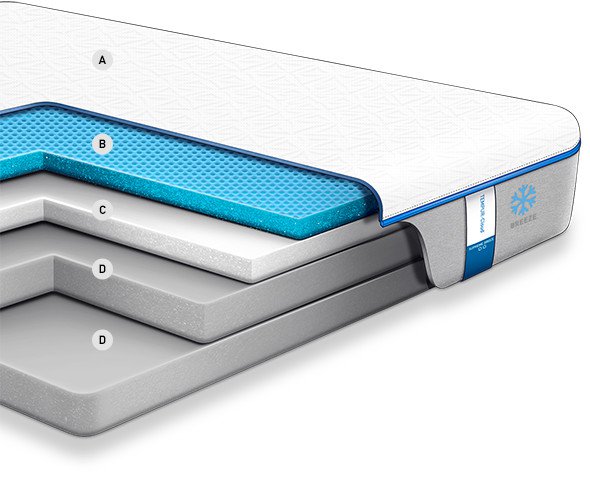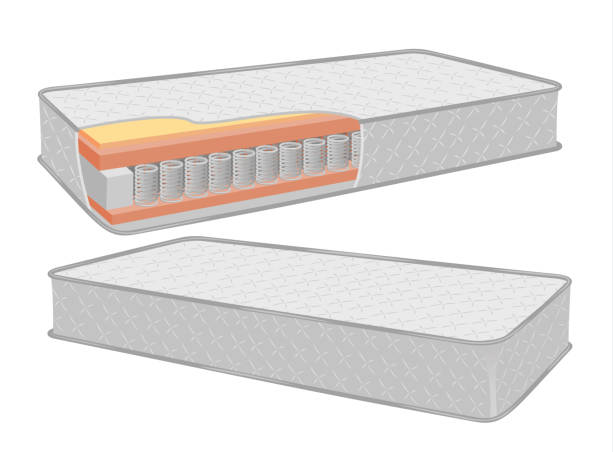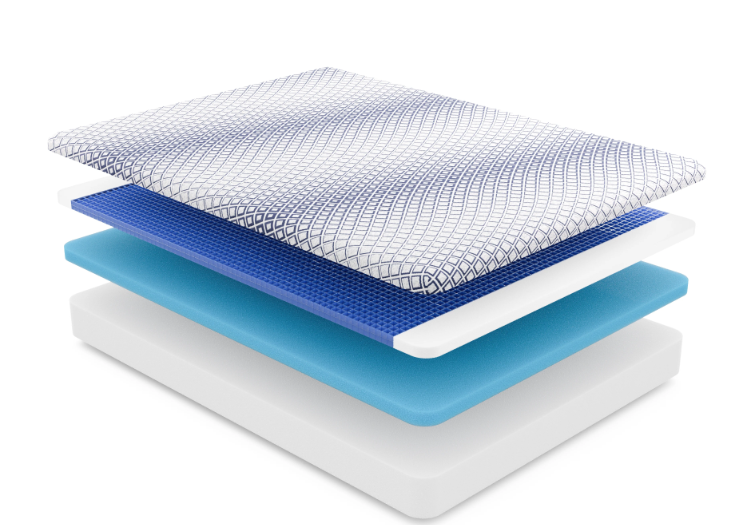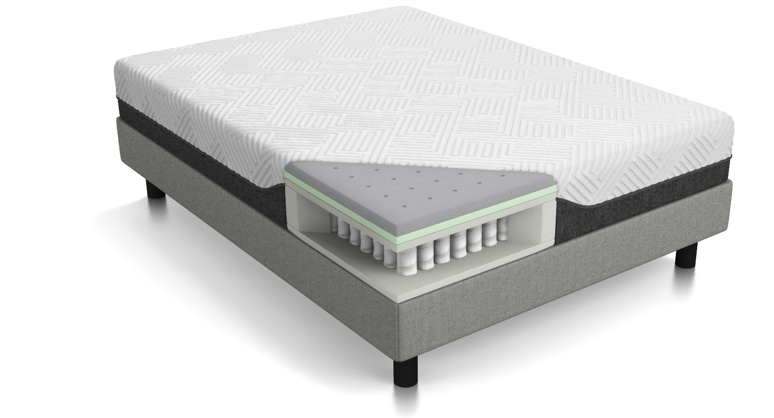Learn How to Find the Right Mattress for You
So you're shopping for a new mattress maybe you're not sure where to start or you've got some burning questions that you haven't figured out yet. There are a few things to keep in mind when you're looking for that perfect bed like how you sleep or what's waking you up at night. Finding the right size bed and of course what brand will be best. Down below is a guide to learn about mattresses and to find out what is the best option for you!
-

Foam
Memory foam is designed to soften and conform to the shape of your body when you lie down to provide pressure relief, support, and motion isolation. It comes in arrange of comfort levels from firm to plush.
-

Innerspring
Traditional spring beds have the original mattress technology, making them a tried and true option. Spring mattresses use a support system made of metal springs or coils and offer the widest variety of comfort. They are extremely durable and come at almost every price point.
-

Gel Grid
Gel grid mattresses are a type of hybrid with cutting-edge gel technology. They feel firm and soft at the same time and are great for keeping your spine aligned. The open gel structure helps keep you cool throughout the night.
-

Hybrid
Hybrid mattresses balance support and comfort by combining innerspring and foam technology. In short, they offer the best of both worlds and are a great option when you want any specific combination of support and comfort levels.
Which Type of Mattress is Best?
No one type of mattress is the best in all cases. However, for some sleepers, one type of mattress can be a better fit and provide more consistent, pain-free sleep.
Part of choosing a mattress involves evaluating the different mattress types in detail to understand their pros and cons and determine which is best for you.
Innerspring Mattresses
Collapsible content
Support Coil
Support Coil
- Coil
Comfort System Profile
Comfort System Profile
- Minimal
Comfort System Material(s)
Comfort System Material(s)
- Foam
- Latex
- Cotton
- Wool
- and/or polyester
Strengths
Strengths
- Edge support
- Bounce
- Temperature
- regulation
Weaknesses
Weaknesses
- Pressure relief
- Motion isolation
- Durability
- Noise
Innerspring mattresses are characterized by their coil-based construction, where the coils compress under pressure and quickly rebound when pressure is released, offering a degree of body weight accommodation for both comfort and support. However, these mattresses typically lack a substantial comfort layer above the coils, often incorporating thin layers of materials like cotton and polyester to provide a minimal touch of softness. Innerspring mattresses are known for their responsiveness, imparting a bouncy feel and being well-suited for activities like intimacy. They generally offer average or better edge support and tend to have good airflow through the coils, minimizing heat retention issues. On the downside, the limited comfort system can result in inadequate pressure relief, especially for side sleepers with pronounced pressure points, and the coil structure may transfer motion, making partner movements more noticeable. Additionally, direct pressure on the coils can lead to quicker wear and potential squeaking, making innerspring mattresses noisier compared to other mattress types.
Hybrid Mattresses
Collapsible content
Support Coil
Support Coil
- Coils
Comfort System Profile
Comfort System Profile
- Significant
Comfort System Material(s)
Comfort System Material(s)
- Memory foam
- Polyfoam
- Latex Cotton
- Wool
- and/or Polyester
Strengths
Strengths
- Bounce
- Temperature Regulation
- Balanced features
Weaknesses
Weaknesses
- Motion isolation
- Heavier/bulkier
Hybrid mattresses are designed with a unique combination of features, featuring an innerspring support core that collaborates harmoniously with a substantial comfort system. This construction allows hybrids to strike a well-balanced feel, harnessing the benefits of various components while minimizing their drawbacks.
In most hybrid mattresses, the innerspring core incorporates pocketed coils, which not only enhance motion isolation but also bolster edge support and bounce in comparison to all-foam mattresses. Additionally, these coils have the advantage of dissipating heat efficiently, contributing to effective temperature regulation.
However, it's worth noting that hybrids may exhibit slightly more motion transfer compared to most foam mattresses, which can be attributed to their design. Furthermore, hybrids tend to be heavier, less maneuverable, and often come with a higher price tag than other mattress types.
The comfort system within a hybrid mattress can consist of various layers and material combinations, including pocketed micro-coils, memory foam, polyfoam, latex, and textile fabrics. The specific composition of the comfort system is a crucial factor that significantly impacts the mattress's overall performance. While hybrid mattresses generally share certain standard characteristics, the diversity in mattress feel among hybrids is extensive, making careful consideration of the comfort system essential when selecting the right hybrid mattress for your needs.
Foam Mattresses
Collapsible content
Support Coil
Support Coil
- Polyfoam
Comfort System Profile
Comfort System Profile
- Significant
Comfort System Material(s)
Comfort System Material(s)
- Memory foam
- Polyfoam
- Latex
- Cotton
- Wool
- and/or Polyester
Strengths
Strengths
- Pressure relief
- Motion isolation
- Low noise
Weaknesses
Weaknesses
- Edge support
- Bounce
Foam mattresses have gained immense popularity in today's mattress market. These mattresses are uniquely crafted without any involvement of coils; instead, each layer consists of foam, latex, or fabric materials.
Typically, the support core of a foam mattress comprises a thick layer of polyfoam that is notably firmer and denser than the polyfoam used in the comfort system. This robust foundation ensures adequate support.
The comfort system of a foam mattress can encompass multiple layers, incorporating materials such as memory foam, polyfoam, latex, or other fabrics. This generous comfort system is what enables foam mattresses to excel in providing exceptional pressure relief, motion isolation, and noise reduction. High-quality foam mattresses are known for their impressive durability, often lasting between 6 to 8 years or even longer.
However, it's essential to be aware of potential drawbacks with foam mattresses, including issues related to heat retention, excessive sinking into the bed, reduced bounce, and weaker edge support. The extent to which these issues manifest largely hinges on the specific type and quality of materials utilized in the comfort system.









